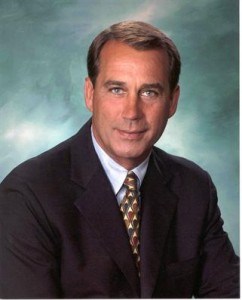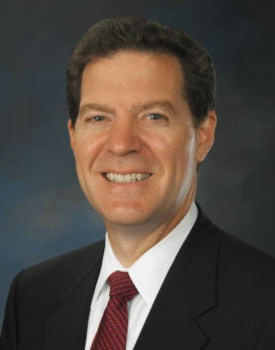 AT&T’s Senior Executive Vice President of Legislative Affairs James Cicconi e-mail bombed AT&T employees Monday asking them to express their “deep concern” for Net Neutrality on the FCC’s Net Neutrality website’s comment section. (Thanks to several Stop the Cap! readers, among them Dave, “Gaff”, “Bones”, “Prevent Caps” and James who sent news tips on this story. The delay in publication came from assembling a response you, as actual consumers, can fire back at the AT&T Propaganda Parade on the FCC website.)
AT&T’s Senior Executive Vice President of Legislative Affairs James Cicconi e-mail bombed AT&T employees Monday asking them to express their “deep concern” for Net Neutrality on the FCC’s Net Neutrality website’s comment section. (Thanks to several Stop the Cap! readers, among them Dave, “Gaff”, “Bones”, “Prevent Caps” and James who sent news tips on this story. The delay in publication came from assembling a response you, as actual consumers, can fire back at the AT&T Propaganda Parade on the FCC website.)
More than 300,000 AT&T employees received the “suggestion” in their e-mail box, complete with ready-made talking points employees can use to parrot AT&T’s anti-Net Neutrality positions. In a remarkably brave section, Cicconi suggests employees not use their company e-mail accounts when engaged in the “grassroots” push back, as if word of that maneuver would not promptly get leaked to the media. (By Tuesday morning, it did.) The FCC shouldn’t know the barrage of anti-consumer, anti-Net Neutrality comments came as a result of a PressureGram from AT&T Corporate.
“We encourage you, your family and friends to join the voices telling the FCC not to regulate the Internet,” Cicconi wrote in his letter. “Those who seek to impose extreme regulations on the network are flooding the site to influence the FCC; it’s now time for you to voice your opinion.”
(Note: Most of those seeking to “impose extreme regulations” are actual consumers.)
The convenient “talking points” AT&T provided are identical to the comments found on any anti-consumer, telecom-sponsored astroturf group website. That’s no surprise, considering most of those astroturf groups survive on the checks sent by those large telecommunications companies.
We debunk them for your convenience:
- America’s wireless consumers enjoy the broadest range of innovative services and devices, lowest prices, highest usage levels, and most choices in the world. Why disrupt a market that’s working so well?
That’s demonstrably false. Consumers Union and other consumer groups independently found a high degree of concentration and obstacles to competition among providers of mobile data and Internet access services, which Net Neutrality rules would cover. As Stop the Cap! has already reported, competition for wireless broadband is hardly a Battle Royale with virtually every carrier charging around the same amount for 5 gigabytes of maximum mobile web usage per month. AT&T was charging a ridiculous $480 per gigabyte for those exceeding that limit, according to CU. Americans pay an average of over $500 a year for wireless access, which hardly represents the lowest prices. Consumers Union discovered Americans pay “much more than users in most other developed nations.”
Americans also endure restrictive phone plans that give exclusivity to popular handsets, limit certain web applications from wireless usage, and impose often stiff penalties for choosing to end a relationship with a wireless provider before the contract term has ended.
- There is fierce competition for wireless and broadband customers. Competition drives innovation and encourages companies to develop products, services and applications that consumers want. There’s been more innovation in this market than in any since the World Wide Web was introduced. The market is working for consumers. Don’t burden it with unnecessarily harmful regulations.
That’s brazenly false. The wireless telephone industry has contracted in the last several years due to mergers and acquisitions and a determination by several independent resellers that profits were elusive reselling access to another company’s wireless network. Alltel is now owned by Verizon Wireless. Virgin Mobile, which took over Helio, will itself likely soon be owned by Sprint. Amp’d Mobile, Disney Mobile and ESPN Mobile, among many other resellers, disappeared altogether.
Most rural Americans “enjoy” a monopoly broadband service provided, where available, by their local phone company providing slow speed DSL service. Most medium sized cities are served by a duopoly — one cable and one phone company. Innovation in broadband comes to some, such as those served by Verizon FiOS, and skipped for others, such as those suffering with Frontier, FairPoint, and other phone companies that believe standard DSL is “good enough.” AT&T, among many other providers, now want to experiment with rationing the Internet with Internet Overcharging schemes designed to curb use of their broadband services.
- Network companies have to be able to manage their networks to ensure the most economical and efficient use of bandwidth, and provide affordable broadband services for all users. Network management is essential for consumers to enjoy the benefits of new quality-sensitive applications and services. The FCC rules should not stop the promise of life-changing, cost-saving services such as telemedicine that depend on a managed network.
That’s ludicrously false. Managing networks, which sounds benign in theory, is often not in practice. Several providers have recently taken a turn towards limiting access to those networks with usage rationing plans that limit consumers to a pre-determined amount of usage before overlimit fees or service termination kicks in. AT&T is testing those schemes in Beaumont, Texas and Reno, Nevada this very day. Stop the Cap! has repeatedly documented providers that admit their connectivity costs are dropping, right along with their investments in those networks to keep up with demand. For some network companies, throwing hundreds of hours of online video to congest those networks seems to be an okay proposition, telemedicine or not. Upgrade the networks that earn the American broadband industry billions in profits every year.
- The “net neutrality” rules as reported will jeopardize the very goals supported by the Obama administration that every American have access to high-speed Internet services no matter where they live or their economic circumstance. That goal can’t be met with rules that halt private investment in broadband infrastructure. And the jobs associated with that investment will be lost at a time when the country can least afford it.
That’s infamously false. AT&T managed to eke out an existence after its merger with BellSouth when it had to live under a Net Neutral regime for two years. As Tim Karr from Free Press notes, “AT&T is loath to mention that it made considerable network investment when it had to abide by Net Neutrality conditions, and then invested considerably less when it didn’t.” Somehow, U-verse will survive a Net Neutral world.
Meanwhile, many other broadband providers are in no hurry to expand or build new networks unless their hands are forced by the other competitor in the market threatening to steal their customers away. AT&T’s U-verse offering is a direct response to the cable television industry swiping their customers with “digital phone” and cable television bundles that include broadband. Time Warner Cable earns most of its new broadband customers at the phone company’s expense when consumers tire of slow, unreliable DSL service.
For rural communities, a Net Neutral America won’t make much difference either way. Without Net Neutrality protection, companies like Verizon continue to abandon more rural states, selling off operations to companies like FairPoint and Frontier Communications, which have uninspired broadband programs that bring slow DSL service to areas that will never be wired for Verizon fiber-optic FiOS. Large phone companies like Verizon continue to layoff employees, especially in the traditional wireline telephone business.
If we wait for private companies to deliver broadband to every American, it will be a very long wait. But when it does arrive, it would be nice if consumers could actually enjoy their broadband service without network throttles and Internet Overcharging schemes.
- The FCC shouldn’t burden an industry that is bringing jobs and investment to the country, but if it is going to regulate the Internet it should do so fairly. The goal of the FCC should be to maintain a level playing field by treating all competitors the same. Any new rules should apply equally to network providers, search engines and other information services providers.
That’s a laughably false premise. When is the last time you bought broadband service from Yahoo!, Bing, or Google? AT&T wants to compare their broadband apples with search engine oranges. A level playing field would mean an end to the too-cute-by-half cable industry’s unofficial non-compete regime which makes sure no large cable operator intrudes on someone else’s territory. It would mean an end to exclusive wireless handset provisions and gotcha contract terms designed to hold customers hostage to their wireless provider. It would guarantee that if a municipality is fed up with the broadband backwater status afforded it by providers convinced what they deliver is “good enough,” that municipality can construct their own advanced broadband network and do the job private providers won’t.
Broadband regulated in the providers’ best interests have resulted in middle-of-the-pack broadband service for Americans, not the world class networks America can use to leverage a leadership role in the digital economy of the future. The FCC should regulate the Internet to provide free, open access to innovative products and services that will really create new jobs for Americans. They should definitely not continue a protectionism regime already in place that forces Americans to choose near-identical wireless service plans at high prices, and broadband service from one or two providers with dreams of Internet Overcharging schemes and speed throttles.


 Subscribe
Subscribe






